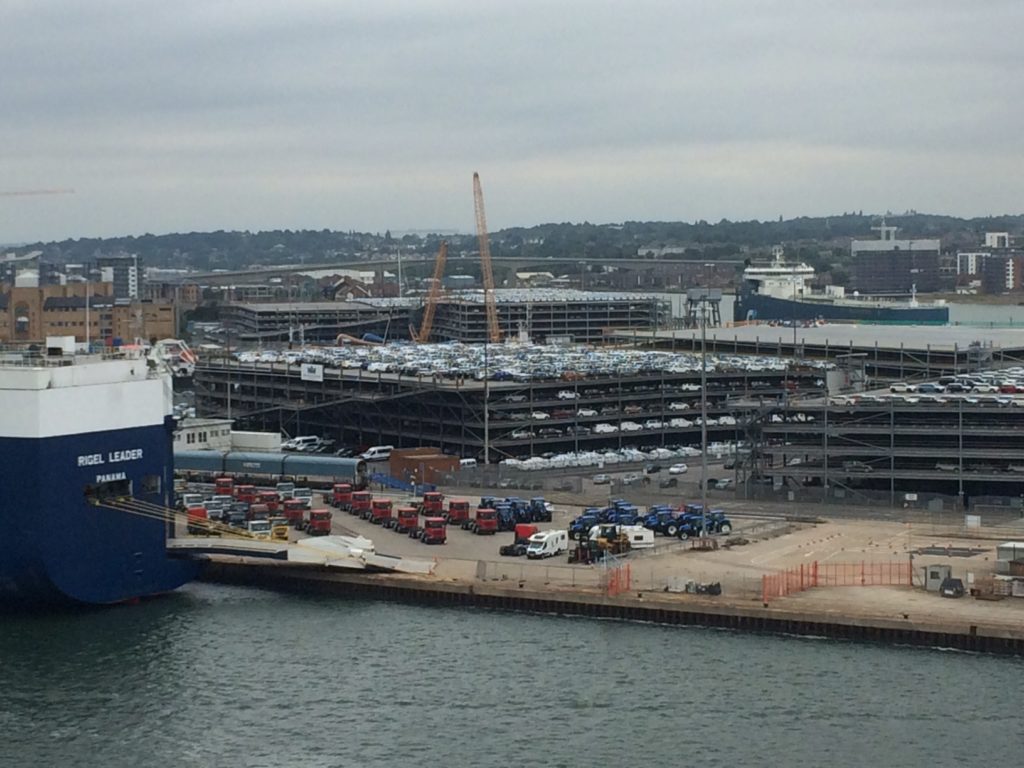UK targets US, Australia and New Zealand for new trade deals

The UK is preparing independent strategies for new trading partners as it looks to life after Brexit.
This means the UK will have the opportunity to negotiate and enter into trade agreements with other countries.
These agreements can:
- enable increased trade and investment
- secure access for UK exporters to the key markets of today and the future
- give consumers access to a greater range of products at lower prices
- make the UK more innovative, competitive and prosperous
Initially, the Department for International Trade is preparing for possible negotiations with the United States, Australia and New Zealand after the UK leaves the EU on March 29, 2019.
The UK government is consulting with members of the public, businesses, trade experts, and any other interested organisations to help inform this work.
The UK’s aim is to prepare for an independent trade policy once we leave the EU. The government wants to maximise trade opportunities globally – both by boosting our trading relationships with existing partners and forging new agreements, as well as retaining close links with the EU.
Future strategy will be based around an ambitious bilateral trade agenda as set out in the Brexit White Paper published earlier this month.
As part of this, the UK will have the opportunity to negotiate, sign, and ratify Free Trade Agreements (FTAs) during the implementation period and to bring them into force from January 2021. These agreements can enable increased trade and investment, secure access for UK exporters to the key markets of today and the future, give consumers access to a greater range of products at lower prices, and make the UK more innovative, competitive and prosperous.
Trade agreements aim to reduce trade barriers between countries. Barriers can be taxes charged on goods as they cross borders (tariffs), or different rules and regulations that can add to trade costs (non-tariff measures). Trade and investment barriers make it more difficult and costly to trade or invest overseas. Reducing these barriers can help the flow of goods, services and money for investment between countries, and help businesses to access markets they previously weren’t able to. Consumers can benefit from access to a greater variety of products at lower prices.
Trade agreements do not prevent governments from regulating as they see fit, and they also do not require governments to privatise any services.
The latest consultations will help shape future trade relationship with the United States, Australia and New Zealand.
Trade with the United States
The government said the UK and US economies have never been more deeply intertwined, making the US a vital trading and investment partner for the UK.
The US was the UK’s largest single bilateral trading partner in 2016 (accounting for 15% of total UK trade) and the UK’s largest single export market (accounting for 18% of all UK exports). Total trade in goods and services between the UK and the US was worth £181 billion in 2017. The US was also the top destination for UK investment and the top investor in the UK in 2016.
A UK-US free trade agreement would aim to build on Britain’s existing trade and investment relationship, benefiting both economies – whilst ensuring that it meets the UK’s international obligations and maintains high standards of consumer, labour, animal and environmental protection.
Trade with Australia
Australia is an important trading partner for the UK. Both countries are active supporters of the international rules-based system and the UK works closely with Australia in many multilateral forums including the United Nations, G20, WTO and the Commonwealth.
Many UK businesses are already viewing Australia as an attractive base for their regional operations, and Australia’s connections in Asia makes it an excellent partner for the UK to launch into a region which stands to deliver nearly two thirds of global growth to 2030.
DIT said the UK and Australia had the opportunity to develop a gold standard trade agreement. Trade between the UK and Australia was worth £13.1 billion in 2016, with two-way Foreign Direct Investment stocks between both countries valued at over £52 billion in the same year.
The department said a UK – Australia free trade agreement would look to build on existing trade and investment relationship, benefiting both economies.
Trade with New Zealand
Similar to Australia, New Zealand is an important trading partner for the UK.
The DIT said an agreement with New Zealand represented an excellent opportunity to set ambitious common rules and make trade easier while acting on the issues we both care about including sustainability, gender, protection against discrimination, and labour rights. Like the UK, New Zealand is also committed to high environmental standards.
Trade between the UK and New Zealand was worth £2.5 billion in 2016.
The government has published information packs to be read in conjunction with the consultations.
The packs explains the rationale for free trade agreements, the provisions they typically cover, and gives an overview of the UK’s current trade and investment levels with each of the countries.